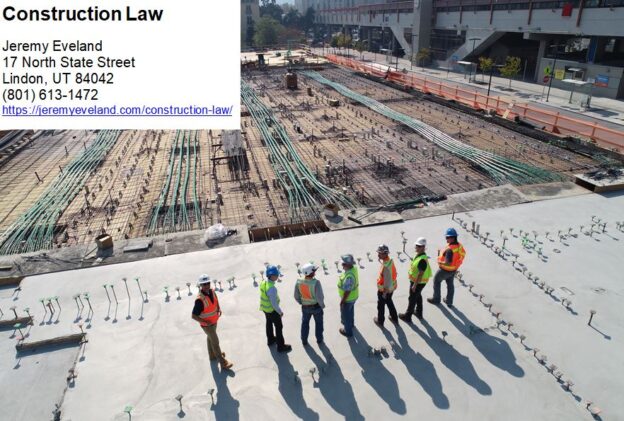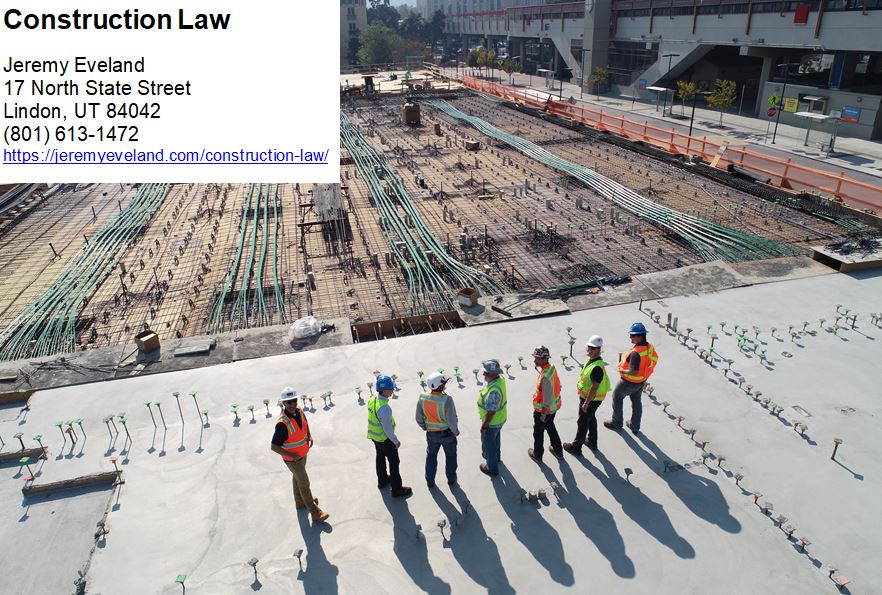-
Legal Topics
“Navigating the Complexities of Business Law with Expertise and Efficiency”
Introduction
Welcome to our Business Law Firm! We are a full-service law firm dedicated to providing comprehensive legal services to businesses of all sizes. Our experienced attorneys have a deep understanding of the legal issues that businesses face and are committed to providing the highest quality legal advice and representation. We specialize in a wide range of business law matters, including corporate formation, contract drafting and negotiation, intellectual property protection, mergers and acquisitions, and dispute resolution. Our team of experienced attorneys is committed to providing our clients with the best legal advice and representation possible. We strive to provide our clients with the highest level of service and to ensure that their legal needs are met in a timely and cost-effective manner. Thank you for considering our firm for your business law needs.
The Benefits of Working with a Business Law Firm
Working with a business law firm can be a great asset to any business. A business law firm can provide a wide range of services that can help a business succeed. Here are some of the benefits of working with a business law firm:
1. Expertise: Business law firms have a team of experienced attorneys who specialize in business law. They understand the complexities of the legal system and can provide sound legal advice to help businesses navigate the legal landscape.
2. Cost Savings: Working with a business law firm can save businesses money in the long run. By having an experienced attorney on their side, businesses can avoid costly legal mistakes and disputes.
3. Efficiency: Business law firms are experienced in handling a variety of legal matters. This means that they can handle legal matters quickly and efficiently, saving businesses time and money.
4. Accessibility: Business law firms are available to answer questions and provide advice when needed. This can be especially helpful for businesses that are just starting out and need guidance on legal matters.
5. Protection: Business law firms can help businesses protect their interests and assets. They can provide advice on contracts, intellectual property, and other legal matters that can help businesses protect their interests.
Overall, working with a business law firm can be a great asset to any business. With their expertise, cost savings, efficiency, accessibility, and protection, businesses can benefit greatly from working with a business law firm.
Understanding the Different Types of Business Law__WPAICG_IMAGE__
Business law is a broad area of law that covers many different types of legal issues that arise in the course of running a business. It includes laws related to contracts, employment, intellectual property, taxation, and more. Understanding the different types of business law is essential for any business owner or manager.
Contract Law: Contract law is the area of law that governs the formation and enforcement of contracts. It is important for businesses to understand the basics of contract law in order to ensure that their contracts are legally binding and enforceable.
Employment Law: Employment law is the area of law that governs the relationship between employers and employees. It covers topics such as wages, hours, benefits, discrimination, and more. It is important for businesses to understand the basics of employment law in order to ensure that they are compliant with all applicable laws.
Intellectual Property Law: Intellectual property law is the area of law that governs the protection of creative works such as inventions, trademarks, and copyrights. It is important for businesses to understand the basics of intellectual property law in order to protect their creative works from infringement.
Tax Law: Tax law is the area of law that governs the taxation of businesses and individuals. It is important for businesses to understand the basics of tax law in order to ensure that they are compliant with all applicable laws and regulations.
Corporate Law: Corporate law is the area of law that governs the formation and operation of corporations. It is important for businesses to understand the basics of corporate law in order to ensure that their corporate structure is legally sound and compliant with all applicable laws.
Securities Law: Securities law is the area of law that governs the issuance and trading of securities such as stocks and bonds. It is important for businesses to understand the basics of securities law in order to ensure that their securities offerings are compliant with all applicable laws.
These are just a few of the different types of business law that businesses need to be aware of. It is important for businesses to understand the basics of each type of business law in order to ensure that they are compliant with all applicable laws and regulations.
How to Choose the Right Business Law Firm for Your Needs
Choosing the right business law firm for your needs is an important decision. It is essential to find a firm that has the experience and expertise to handle your legal matters. Here are some tips to help you select the right business law firm for your needs.
1. Research: Before selecting a business law firm, it is important to do your research. Look for firms that specialize in the type of legal services you need. Check out their website and read reviews from past clients. This will give you an idea of the firm’s reputation and the quality of their services.
2. Experience: Make sure the firm you choose has experience in the type of legal services you need. Ask about their experience in similar cases and how they have handled them. This will give you an idea of how they will handle your case.
3. Cost: Consider the cost of the services you need. Ask for a quote and compare it to other firms. Make sure you understand the fees and any additional costs that may be associated with the services.
4. Communication: It is important to find a firm that is willing to communicate with you. Ask about their communication methods and how often they will be in touch with you. This will ensure that you are kept up to date on the progress of your case.
5. Reputation: Check the firm’s reputation. Ask for references and read reviews from past clients. This will give you an idea of how the firm has handled similar cases in the past.
By following these tips, you can find the right business law firm for your needs. Make sure to do your research and ask questions to ensure that you are selecting the best firm for your legal needs.
The Role of Business Law in Business Transactions
Business law plays an important role in business transactions. It is a set of laws that govern the conduct of businesses and their relationships with customers, employees, suppliers, and other stakeholders. Business law helps to ensure that businesses operate in a fair and ethical manner, and it also provides a framework for resolving disputes.
Business law covers a wide range of topics, including contracts, torts, intellectual property, employment law, and corporate law. It is important for businesses to understand and comply with the laws that apply to them, as failure to do so can lead to costly legal disputes and penalties.
Contracts are an important part of business law. A contract is an agreement between two or more parties that is legally enforceable. Contracts are used to define the rights and obligations of each party, and they can be used to protect businesses from potential liabilities. Businesses should ensure that their contracts are properly drafted and that they are aware of their rights and obligations under the contract.
Torts are another important area of business law. Torts are civil wrongs that can result in legal liability for the person or business that commits them. Examples of torts include negligence, defamation, and intentional interference with contractual relations. Businesses should be aware of the potential torts that they may be liable for and take steps to minimize their risk.
Intellectual property is another important area of business law. Intellectual property includes trademarks, copyrights, and patents. These rights protect businesses from having their ideas and products copied or stolen. Businesses should be aware of their intellectual property rights and take steps to protect them.
Employment law is also an important part of business law. Employment law governs the relationship between employers and employees. It covers topics such as wages, hours, discrimination, and safety. Businesses should be aware of their obligations under employment law and ensure that they are compliant.
Finally, corporate law is an important part of business law. Corporate law governs the formation and operation of corporations. It covers topics such as corporate governance, shareholder rights, and mergers and acquisitions. Businesses should be aware of their obligations under corporate law and ensure that they are compliant.
In conclusion, business law plays an important role in business transactions. It helps to ensure that businesses operate in a fair and ethical manner, and it provides a framework for resolving disputes. Businesses should be aware of the laws that apply to them and take steps to ensure that they are compliant.
The Impact of Recent Changes in Business Law on Businesses
Recent changes in business law have had a significant impact on businesses. These changes have been implemented to ensure that businesses are operating in a fair and ethical manner, and to protect the rights of consumers.
One of the most significant changes in business law is the introduction of the General Data Protection Regulation (GDPR). This regulation was introduced in 2018 and applies to all businesses that process personal data of EU citizens. It requires businesses to be transparent about how they use personal data, and to ensure that it is stored securely. Businesses must also obtain consent from individuals before collecting and using their data. Failure to comply with the GDPR can result in hefty fines.
Another important change in business law is the introduction of the Consumer Rights Act 2015. This act provides consumers with a range of rights, including the right to receive accurate information about products and services, the right to receive goods that are of satisfactory quality, and the right to receive a refund if goods are not fit for purpose. Businesses must ensure that they are compliant with the Consumer Rights Act, or they could face legal action.
Finally, the introduction of the Modern Slavery Act 2015 has had a significant impact on businesses. This act requires businesses to take steps to ensure that their supply chains are free from modern slavery and human trafficking. Businesses must conduct due diligence on their suppliers and take steps to ensure that they are not engaging in any form of exploitation.
Overall, recent changes in business law have had a significant impact on businesses. These changes have been implemented to ensure that businesses are operating in a fair and ethical manner, and to protect the rights of consumers. Businesses must ensure that they are compliant with these laws, or they could face legal action.
Q&A
1. What is a business law firm?
A business law firm is a type of law firm that specializes in providing legal services to businesses, such as corporations, partnerships, and limited liability companies. Business law firms typically provide services related to business formation, contracts, mergers and acquisitions, intellectual property, and other areas of business law.
2. What types of services do business law firms provide?
Business law firms provide a wide range of services, including business formation, contract drafting and review, mergers and acquisitions, intellectual property protection, dispute resolution, and other areas of business law.
3. How do I choose a business law firm?
When choosing a business law firm, it is important to consider the firm’s experience and expertise in the areas of law that are relevant to your business. It is also important to consider the firm’s reputation and track record of success.
4. What is the difference between a business law firm and a general practice law firm?
A business law firm specializes in providing legal services to businesses, while a general practice law firm provides legal services to individuals and businesses.
5. How much does it cost to hire a business law firm?
The cost of hiring a business law firm will vary depending on the services you need and the size of the firm. Generally, larger firms will charge more than smaller firms. It is important to discuss fees with the firm before hiring them.
Areas We Serve
We serve individuals for in the following locations:
Salt Lake City Utah
West Valley City Utah
Provo Utah
West Jordan Utah
Orem Utah
Sandy Utah
Ogden Utah
St. George Utah
Layton Utah
South Jordan Utah
Lehi Utah
Millcreek Utah
Taylorsville Utah
Logan Utah
Murray Utah
Draper Utah
Bountiful Utah
Riverton Utah
Herriman Utah
Spanish Fork Utah
Roy Utah
Pleasant Grove Utah
Kearns Utah
Tooele Utah
Cottonwood Heights Utah
Midvale Utah
Springville Utah
Eagle Mountain Utah
Cedar City Utah
Kaysville Utah
Clearfield Utah
Holladay Utah
American Fork Utah
Syracuse Utah
Saratoga Springs Utah
Magna Utah
Washington Utah
South Salt Lake Utah
Farmington Utah
Clinton Utah
North Salt Lake Utah
Payson Utah
North Ogden Utah
Brigham City Utah
Highland Utah
Centerville Utah
Hurricane Utah
South Ogden Utah
Heber Utah
West Haven Utah
Bluffdale Utah
Santaquin Utah
Smithfield Utah
Woods Cross Utah
Grantsville Utah
Lindon Utah
North Logan Utah
West Point Utah
Vernal Utah
Alpine Utah
Cedar Hills Utah
Pleasant View Utah
Mapleton Utah
Stansbury Par Utah
Washington Terrace Utah
Riverdale Utah
Hooper Utah
Tremonton Utah
Ivins Utah
Park City Utah
Price Utah
Hyrum Utah
Summit Park Utah
Salem Utah
Richfield Utah
Santa Clara Utah
Providence Utah
South Weber Utah
Vineyard Utah
Ephraim Utah
Roosevelt Utah
Farr West Utah
Plain City Utah
Nibley Utah
Enoch Utah
Harrisville Utah
Snyderville Utah
Fruit Heights Utah
Nephi Utah
White City Utah
West Bountiful Utah
Sunset Utah
Moab Utah
Midway Utah
Perry Utah
Kanab Utah
Hyde Park Utah
Silver Summit Utah
La Verkin Utah
Morgan Utah
Business Law Firm Consultation
When you need help from a Business Law Firm call Jeremy D. Eveland, MBA, JD (801) 613-1472 for a consultation.
Jeremy Eveland
17 North State Street
Lindon UT 84042
(801) 613-1472
Related Posts
Corporate Attorney Riverton Utah
Advantages of Hiring a Utah Personal Injury Lawyer
Estate Planning Lawyer Provo Utah
Business Lawyer West Valley City Utah
Business Succession Lawyer Eagle Mountain Utah
Estate Planning Lawyer West Jordan Utah
Business Acquisition Lawyer Sandy Utah



















